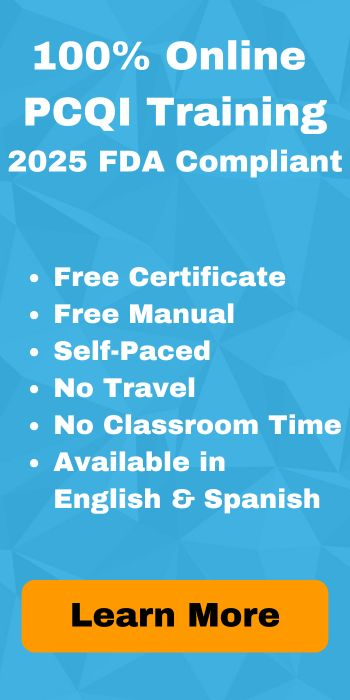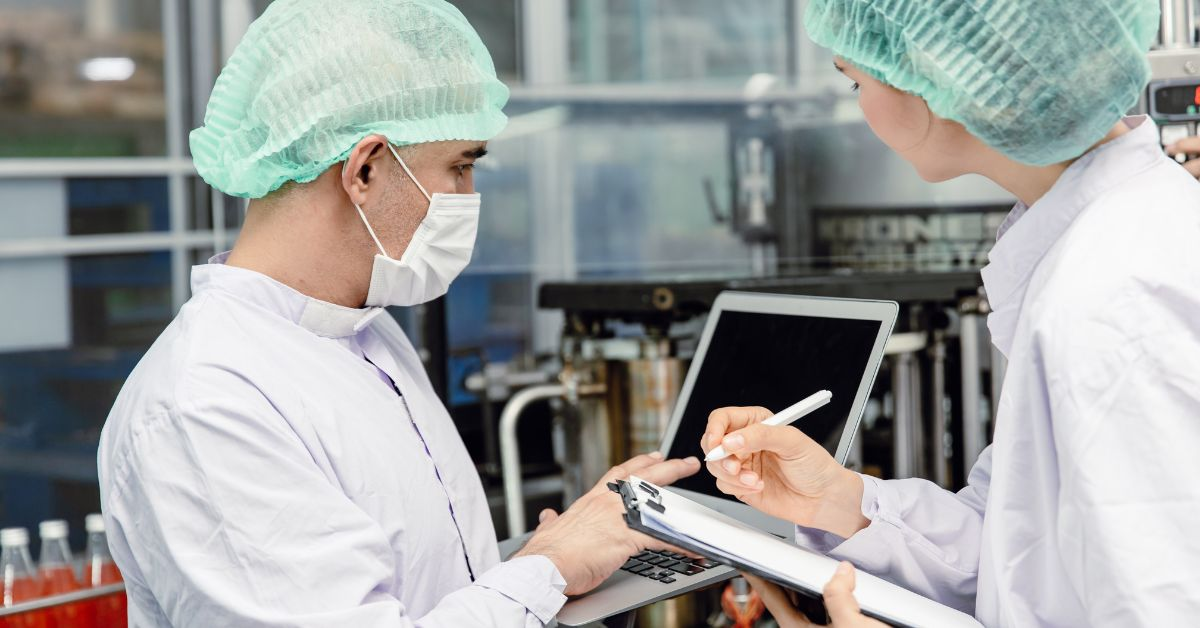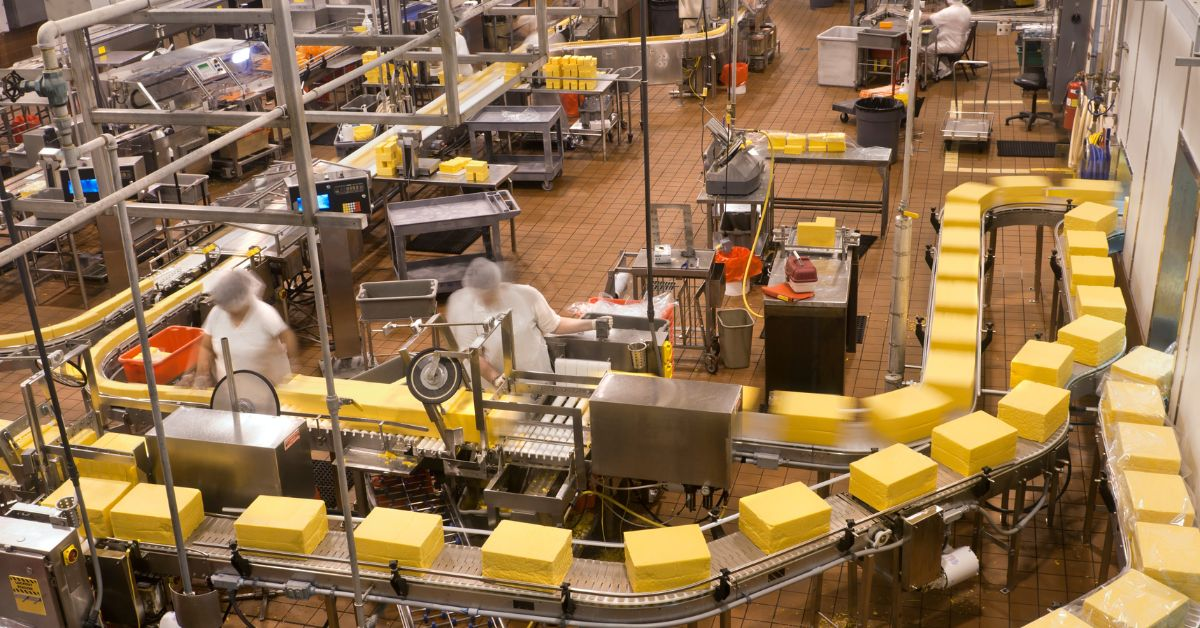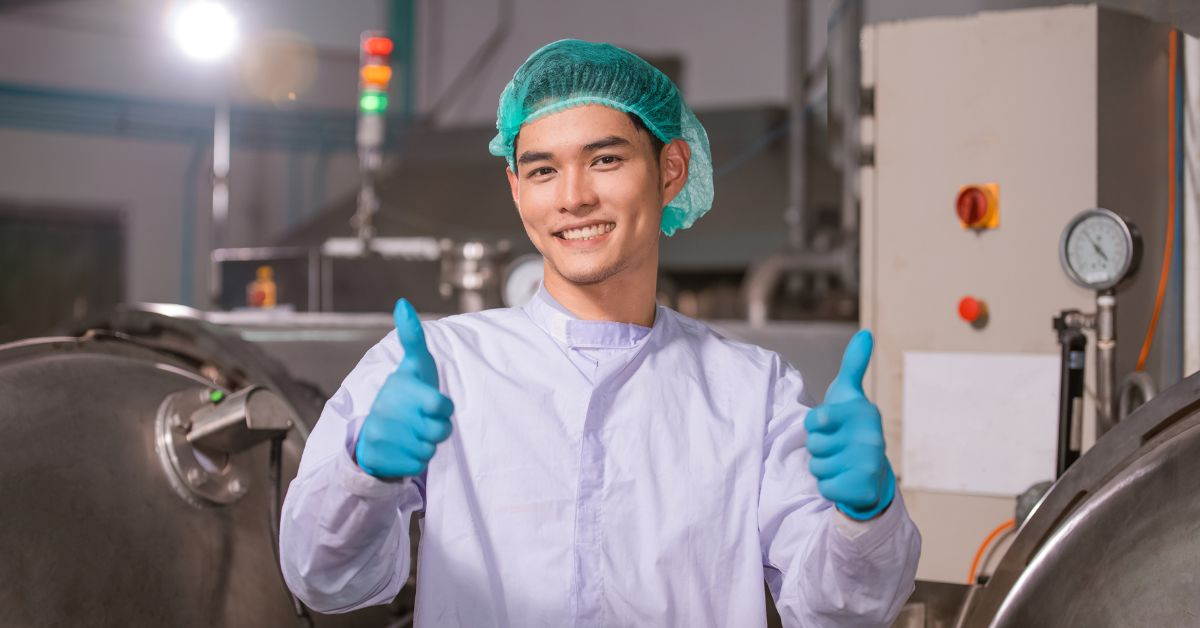
True compliance goes beyond regulations; it starts with people. When teams are encouraged to keep learning, asking questions, and sharing ideas, food safety becomes more than a task; it becomes a shared purpose. A strong learning culture empowers every individual to take ownership, support one another, and protect what matters most: the safety and trust of the food we deliver.
From leadership to production staff, everyone benefits when learning becomes part of your company’s DNA. Investing in ongoing training, such as PCQI training online, ensures that employees stay current, confident, and compliant with FSMA standards and beyond.
What Is a Learning Culture in Food Safety?
A learning culture is an environment where employees are encouraged to gain and share knowledge continually. In food manufacturing, this mindset enables teams to proactively identify risks, enhance preventive controls, and strengthen compliance.
Under the FDA’s Food Safety Modernization Act (FSMA), companies must identify many types of hazards and implement preventive controls to reduce those food safety hazard unique to each of their products and their facility. This requires trained personnel, specifically a Preventive Controls Qualified Individual (PCQI), who can develop and manage a compliant food safety plan.
When employees understand why safety matters, not just how to meet requirements, they take greater ownership of their work, and that’s the essence of a learning culture.
How Do You Build a Learning Culture?
Start by focusing on leadership, accessibility, and engagement.
- Leadership Commitment: Management must demonstrate that learning is a priority. Leaders should model curiosity and pride in food safety responsibility, participate in training, and allocate time for employees to do the same.
- Accessible Training: Not all teams can attend in-person workshops. That’s why ImEPIK’s PCQI training online offers flexible, self-paced modules that make continuous learning possible without disrupting production.
- Feedback Loops: Encourage employees to share lessons from training and real-world experiences that improve your food safety plan.
- Recognition and Reinforcement: Celebrate milestones. From completing PCQI certification to making corrective actions on time, to improving audit scores, maintain the momentum.
Building a learning culture isn’t a one-time initiative; it’s an ongoing commitment to curiosity, communication, and accountability.
How Do You Build a Culture of Continuous Learning?
Continuous learning means integrating education into your daily operations, not just annual training days.
-
- Create Learning Pathways: Offer tiered training programs tailored to different roles, ranging from new hires to supervisors and PCQIs.
- Encourage Collaboration: Schedule brief team discussions to discuss recent FSMA updates, audit findings, or industry recalls.
- Use Real Events as Learning Tools: Treat deviations, non-conformances, and corrective actions as opportunities to teach and improve.
- Measure and Adapt: Track the impact of training on performance: reduced errors, faster responses, or stronger audit results.
- Pay attention to language and intentional messaging: Culture is shown in language about “how we do it here” to maintain our standards.
This approach ensures your facility remains proactive and prepared for evolving food safety challenges.
The 4 P’s of Culture: A Framework for Food Safety Success
People, Processes, Purpose, and Performance provide a roadmap for building a strong food safety culture.
- People: Empowered employees who understand their roles in maintaining food safety.
- Processes: Clear, standardized procedures that integrate learning outcomes into everyday tasks.
- Purpose: A shared vision that safe food is everyone’s responsibility, not just compliance staff.
- Performance: Regularly evaluating and rewarding improvements in both individual and team results.
This framework aligns with the FSMA’s preventive mindset, linking ongoing learning to operational excellence.
Why Ongoing Training Benefits Everyone
Ongoing training keeps your workforce knowledgeable, confident, and compliant. Here’s how it benefits your organization:
- For Managers: Confidence that your facility meets FSMA, GFSI,cGMP and/or BRCGS requirements.
- For PCQIs: Up-to-date understanding of hazard analysis, preventive controls, documentation requirements and verification processes.
- For Employees: Better comprehension of why food safety protocols matter — leading to safer practices and stronger team morale.
Courses like Preventive Controls Qualified Individual training online make this possible for businesses of all sizes by offering affordable, flexible, and certified learning paths.
Building a Future-Ready Food Safety Team
In an industry where one mistake can have major consequences, investing in people is the most effective preventive measure of all. A culture that values continuous learning helps your organization stay adaptable, compliant, and ahead of regulatory changes.
Start building that culture today. When your team is empowered to learn, your company is empowered to succeed. Explore PCQI Training Options and Enroll Today!






